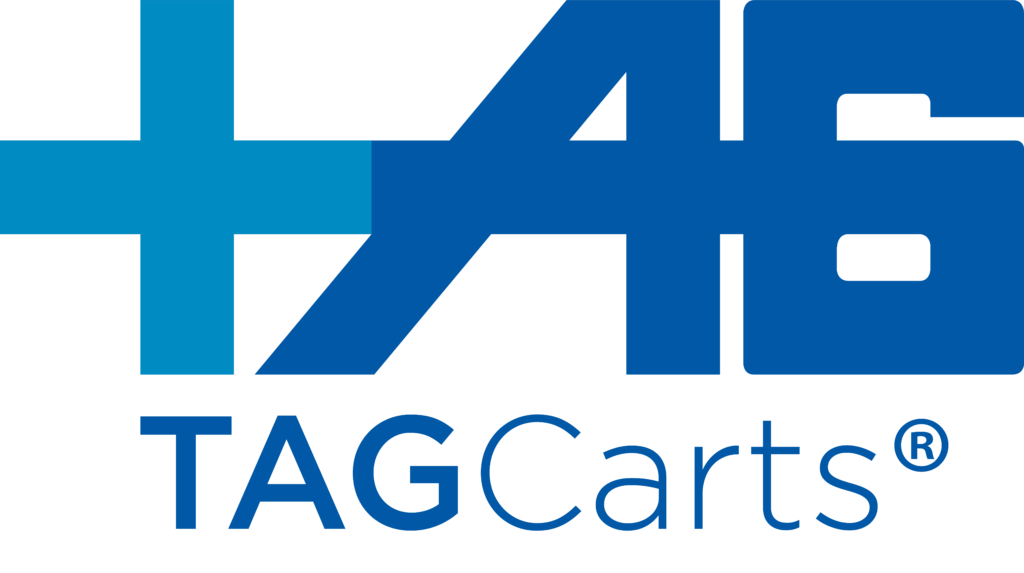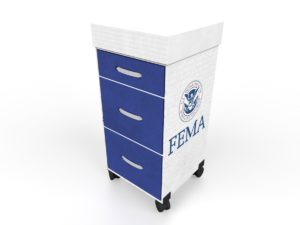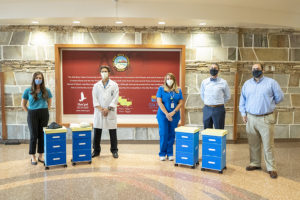News
FOR IMMEDIATE RELEASE: October 26, 2020
SACRAMENTO, California- Unprecedented times call for innovative solutions. The FEMA HEROCart™ is a perfect example of a scalable and deployable solution that addresses the needs of nurses, clinicians, or anyone working to help treat patients during a disaster.
As FEMA procures and deploys various durable medical equipment (DME) kits, consumable medical supply (CMS) kits, comfort hygiene kits and more, the FEMA HEROCart™ stands at parade rest and ready for duty.
Made out of corrugated paper board, FEMA HEROCarts™ are recyclable, lightweight, yet durable multi-drawer carts on wheels, filled with masks, gloves and other personal protective equipment (PPE) to not only protect nurses from injury or infection and improve workflow, but to offer dignity to patients without spreading disease.
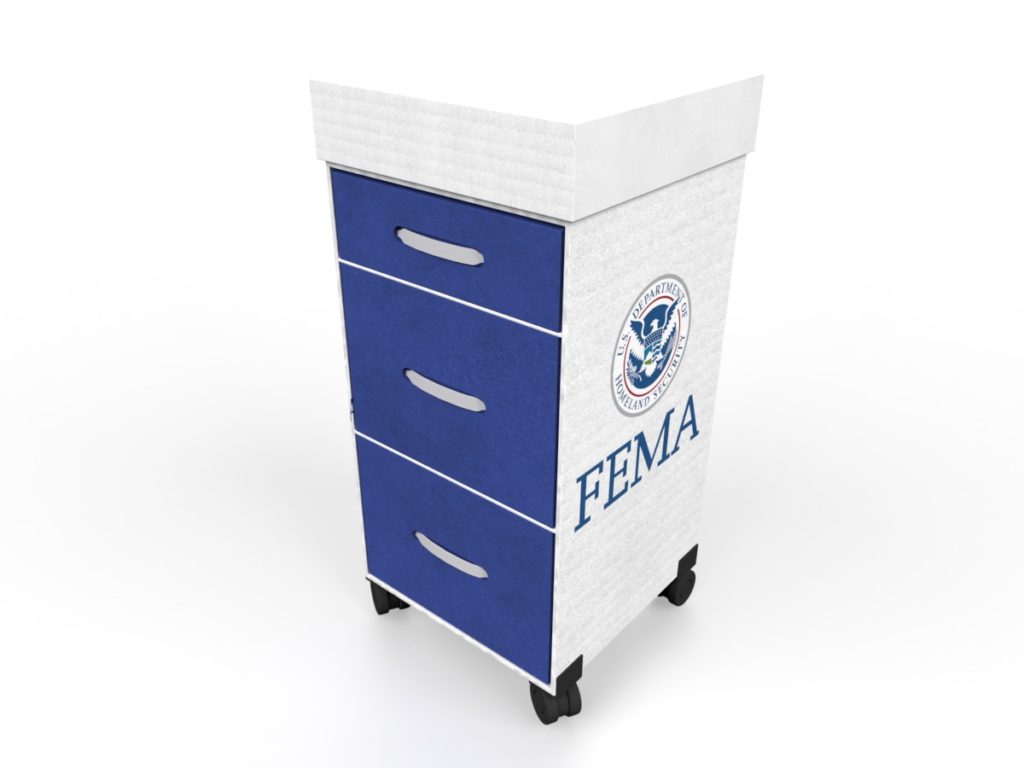
The carts can either be shipped “flat-packed” and assembled in a pop-up fashion on location by response volunteers or, in a more preferred method, they may be kitted with identified supplies and shipped fully assembled and ready for deployment and integration. In addition to various medical supplies and equipment related to COVID-19 and healthcare, they may also be pre-kitted with non-perishable meal kits, comfort items, bedding supplies, hygiene and Commonly Used Sheltering Items (CUSI) for any surge population environment.
U.S. Navy Veteran and TAGCarts’ CEO Taggart Neal says, “As a former sailor, I see the equipment and supplies like the Marines, they do a good portion of the real heavy lifting. But the Navy, or HEROCart in this sense, is the vessel by which they arrive at their point of purpose and improve their ability to perform at their operational point of service. Not only does the FEMA HEROCart store and transport necessary items, it may serve as durable medical equipment, comfort and hygiene personable storage, or potentially collapse and unfold to be used as a shelter item itself.”
The patent-pending HEROCart™ was designed and developed to improve nurse safety and workflow in non-traditional environments of healthcare. The pop-up carts are currently serving in the battle against the COVID-19 global pandemic. Temporary, alternative care sites and acute care hospitals are using HEROCarts as a one-time use cart for positive testing COVID-19 patients, serving as a bedside medical cart for nurses, patients, or both- without the risk of cross-contamination.
Neal says, “Serving nurses during COVID-19 has provided us valuable lessons, resources and partnerships positioning the FEMA HEROCart™ ready to serve on a large scale level. With the product, fulfillment, and supply chains in place as well as being federally registered with System for Award Management (SAM), my company is capable of deploying hundreds of thousands of FEMA HEROCarts™ within weeks.”
“FEMA HEROCarts™ have tremendous opportunity to serve post-disaster populations of hurricanes, earthquakes and fires or other natural events. TAGCarts having them supplied, stored and ready for deployment anywhere on demand is a strong value proposition to emergency management and response agencies”, shares John Krueger, advisor to TAGCarts.
All FEMA HEROCarts are assembled by U.S. Veterans and Americans with Disabilities in California. Recent HEROCart deployments to state emergency management agencies such as California Office of Emergency Services (CAL OES) and Arizona Department of Health Services (AZ DHS) have caught the recent attention of media as helping under-served and at-risk community populations by working with tribal healthcare, municipal public health agencies, acute care hospitals and COVID-19 designated Alternative Care Sites (ACS). See some of our media coverage here, here and here.
According to the third edition (updated 6/30/20) of the CDC Federal Healthcare Resilience Task Force Alternate Care Site Toolkit, concept section 1.1, “An ACS is a building or structure of opportunity that is temporarily converted for health care use during a public health emergency to provide additional health capacity and capability for an affected community, outside the walls of a traditional established health care institution. The safety of patients, care providers and the general public is the main priority.”
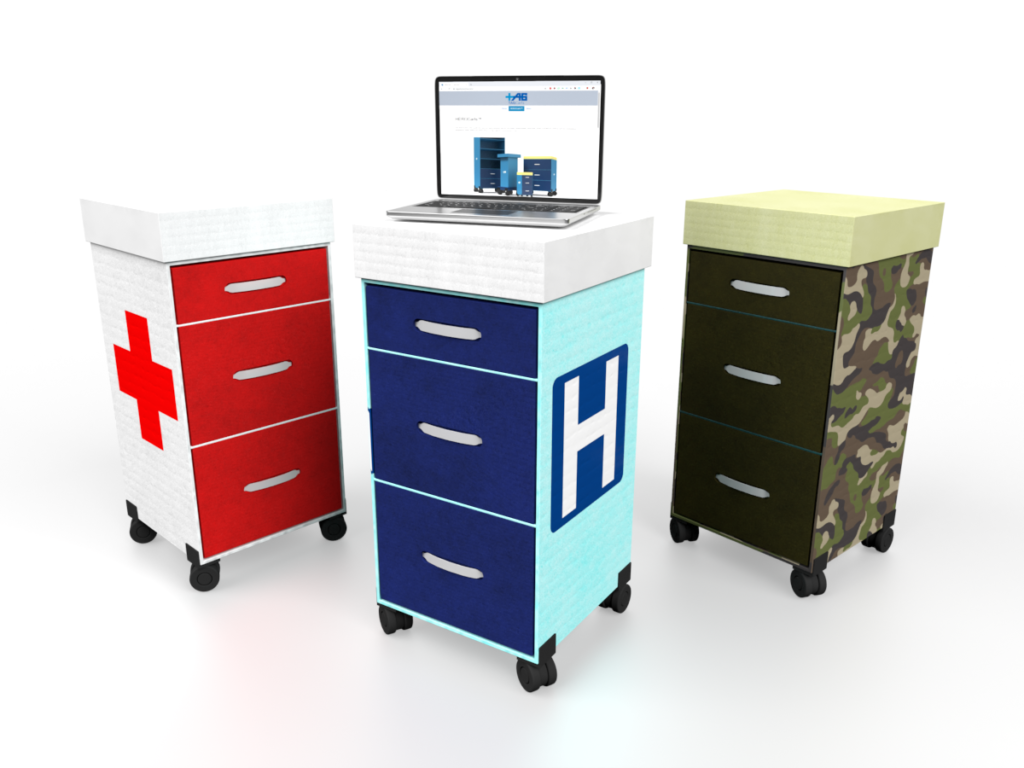
“Whether an emergency response to medical surge population or sudden disaster driven mass population displacement, temporary hybrid environments of care require and demand temporary hybrid solutions. Preparedness is the mission critical key and the FEMA HEROCart is a valuable component of that comprehensive toolkit,” says Founder and CEO Neal.
To customize and build December 2020 shipments and secure warehouse orders for future On-Demand Deployment, procure the company capability statement, or to inquire about a partnership with TAGCarts, visit www.TAGCarts.com
About TAGCarts, Inc.
Based in Sacramento, TAGCartsTM is a Veteran Owned, California Founder Institute company established in 2019 by Founder and CEO, Taggart F. Neal. They are an innovative designer and manufacturer of patent-pending medical carts and workstations for healthcare, with mission driven values of social responsibility and sustainability. Named Comstock’s Magazine “Startup of the Month”, in November 2019, TAGCartsTM continues to offer solutions for today’s hospital medical staff across the country.
About HEROCarts
The HEROCart family of products includes Bedside Carts, PPE Carts, Full Size Isolation Carts, and Laptop/Tablet Workstation Carts. They are identified for Emergency Response, Disaster Response, Temporary and Hybrid Nursing environments, as well as Acute Care Hospital Emergency Departments for a single patient use exchange cart model.
Media Contact:
Kellie DeMarco Communications
916-747-3231
For PDF Press Release please click here

TAGCarts was recently featured in The Lumberjack, Northern Arizona University’s Student Voice Since 1914, for aiding communities in Northern and greater Arizona with HEROCarts, pre-kitted single-patient use medical carts kitted with PPE, to help fight the COVID-19 pandemic. Read the complete article, by Trevor Skeen, HERE.
TAGCarts offers disposable medical equipment
Trevor Skeen Sep 23, 2020
Before the pandemic reshaped businesses around the world, Taggart Neal and John Krueger planned to market their hospital-durable medical equipment. However, the onset of COVID-19 quickly changed those intentions, and the pair unveiled a single-use, biodegradable medical cart stocked with personal protective equipment (PPE) — the HEROCart.
Neal and Krueger donated 250 HEROCarts to the Arizona Department of Health Services (AZDHS), along with an additional 150 units to the Navajo Nation. These supplies are commonly used at alternative care sites, which the Centers of Medicare & Medicaid Services documented as a “broad term for any building or structure that is temporarily converted or newly erected for health care use.”
The reservation spans over certain parts of Arizona, Utah and New Mexico, and local hospitals were filled with COVID-19 patients in May. When alternative care sites were established to treat more people, Neal said 500 beds were sometimes limited to just two medical carts. However, the donated HEROCarts were applied to triage testing rooms, swing-bed areas, outpatient clinics, school nursing facilities and a number of other services, which helped to improve these operations.
Neal is the CEO of TAGCarts, a company he launched in February 2019 with Krueger, an economic development specialist who serves as an advisory board member. The designs, prototypes and products are from Sacramento, California, although both business people received degrees from NAU — Neal from the College of Social and Behavioral Sciences and Krueger from the W.A. Franke College of Business. While adjusting their plans from hospital-durable medical equipment to temporary carts was a big change, Neal said it was an easy decision.
“It may sound cliche, but it wasn’t really a question,” Neal said. “The world was in crisis, and everyone from the governor of California to the president of the United States was asking health care companies to innovate and help.”
Meanwhile, Krueger described hospitals as environments of care that are designed to be permanent and planned. The temporary nature of alternative care sites, however, can lead to challenges in regularizing patients’ treatment, but HEROCarts may provide an answer.
“Each of those environments has their own specific types of carts,” Krueger said. “Without them, the nurses and the doctors — all the health care providers — have a totally different flow of care. How can we give them [alternative care sites] some of the standardized processes in a manner that’s conducive to the pandemic or to a disaster?”
According to the company’s website, each HEROCart contains a lid, upper tray, three drawers and four swivel casters. Inside the carts, health care professionals can find five N95 masks and 15 pairs of medium, large and extra large gloves. For anyone considering donations, the carts are bundled at $250 each.
An email from Kellie DeMarco Communications, a public relations and media company also based in Sacramento, stated that TAGCarts is unable to share the internal and working costs of its services. However, the expenditures were described as “dynamic and proprietary,” which means that cost, scale and pricing models are subject to additional changes.
“While an innovative and patent-pending product, the competitive marketplace we participate in prevents us from sharing internal operational costs including manufacturing,” the email stated. “Production is a mere fraction of a traditional medical cart equivalent typically $2-$5k/each.”
All 150 HEROCarts donated to the Navajo Nation were shipped to Chinle, Arizona, and different areas received distributions thereafter. Neal said the single-use medical carts were used at Sage Memorial Hospital in Ganado, Arizona, along with another facility south of Albuquerque, New Mexico.
Upon receiving its contribution of 250 HEROCarts, AZDHS shared the equipment with a number of counties and tribal lands around the state: Apache, Cocopah, Gila, Navajo, Pima, Pinal, San Carlos and Yavapai among them. Neal also discussed his plans to travel back to Arizona from Sacramento to conduct in-service trainings at various medical facilities applying the company’s product. By carefully working with frontline nurses, doctors and other medical staff, Neal said he can learn more about developing his ideas.
In partnership with PRIDE industries, HEROCarts are assembled by veterans and people with disabilities. While addressing this business model, Neal said “corporate social responsibility” is at the center of TAGCarts’ work, along with the sustainability of its products.
Neal, Krueger and the other employees at TAGCarts are considering new applications for their single-use medical equipment, but they also want to stay devoted to current investors and business partners. In Yemen specifically, Neal said the 1.3 million people fighting through population displacement could benefit from portable PPE.
“Additionally, while we move to a ‘for purchase’ revenue model — away from the hundreds we’ve donated — part of our model is to continue to identify and serve communities and populations who may not be readily available to purchase,” the email stated. “If you want a HEROCart, we’re looking for like-minded, forward-thinking healthcare systems to partner with us!”
Both business people attended NAU at the same time, although Neal studied criminal justice and Krueger economics. Additionally, they each worked at restaurants in west Flagstaff — Chili’s and Subway to be specific — but never met each other while working toward undergraduate degrees. They shared their passion for NAU and the greater Flagstaff community.
“We both have a deep love for Northern Arizona University, Lumberjacks in general and Coconino County and Flagstaff,” Neal said. “John [Krueger] and I are testaments to that.”
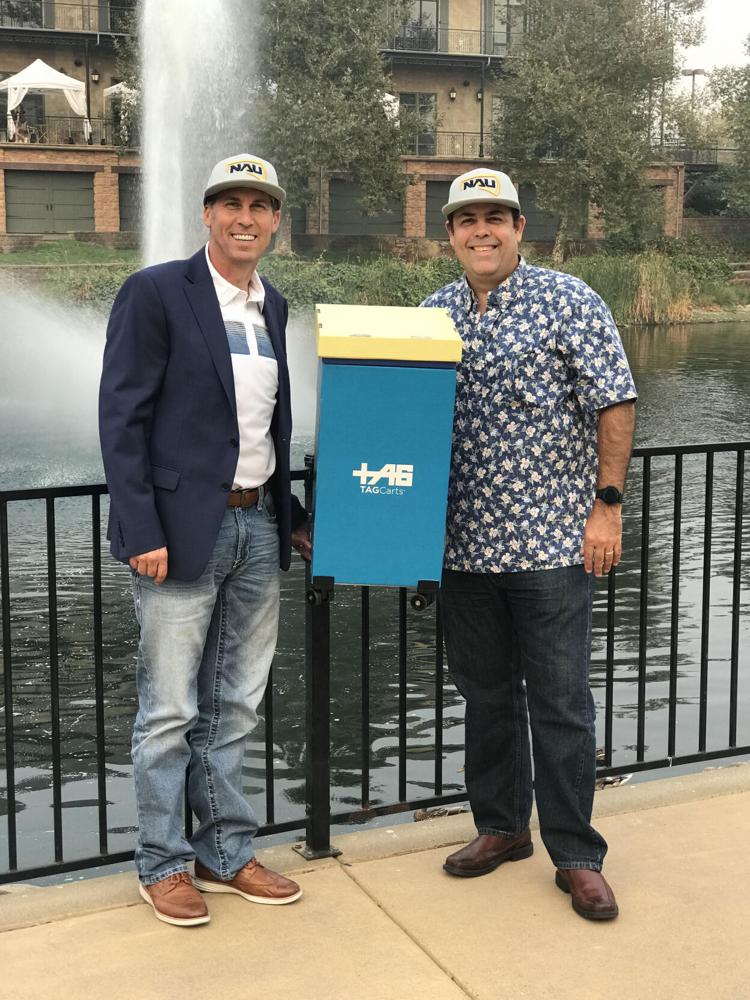
TAGCarts, Inc. was featured on VetLikeMe.org, a national news publication for U.S. veteran-owned businesses. Please see read the article below or click on the link here to see complete article and images.
HEROCarts Has Donated Hundreds Of Disposable Bedside Carts to Nurses and Patients
September 29, 2020 by David Coakley
Like most Veteran business owners, Taggart Neal never planned for a global pandemic. But when the coronavirus hit the U.S. earlier this year, the owner of TAGCarts™ pivoted to serve their healthcare clientele on the front-lines and in need.
“A good plan with the right team today is better than a perfect plan next week, “ Neal says, referring to one of his mantras since his days of service in the U.S. Navy.
Neal responded to California Governor Gavin Newsom’s call for healthcare companies to innovate in the face of COVID-19. Following his service to our country as a Navy Machinist’s Mate, Neal entered the medical industry. In his more than18 years of experience, he has served nurses and the greater healthcare community through medical cart and workstation sales and service. Most recently, he designed the first ever single patient use product family of medical carts. The Sacramento based HEROCarts™ project started in April and hundreds of disposable bedside carts have already been donated to nurses and patients who need them most.
HEROCarts™ are named after real HEROES – the nurses on the frontlines. These lightweight, durable multi-drawer carts on wheels are made out of recyclable paperboard and protect against cross-contamination while providing improved nurse workflow at the point of care. They’re also filled with personal protective equipment.
Neal’s start-up company, TAGCarts™ typically designs and manufacturers medical carts and workstations for hospitals. As the number of coronavirus cases skyrocketed, he immediately identified the void of medical carts and workstations in temporary pop up field hospitals and validated the nurses need for something less permanent to address the environment of care nurses now found themselves in.
The carts are assembled by U.S. Veterans and Americans with disabilities at PRIDE Industries in California. HEROCarts™ have been shipped out to hospitals in California and Arizona and they’re already making a difference. With partnerships ranging from state health departments to PRIDE Industries, HEROCart’s and their kitted PPE are now serving “Alternate Care Sites” and hospitals serving COVID-19 patients.
“I’ve dedicated my career to serving nurses medical carts and workstations that make their heroic jobs easier. Teaming up with U.S. Veterans and Americans with disabilities gives them dignity and honor building TAGCarts which serve to heal Americans in hospitals across the country… it’s a dream come true,” Neal says.
To learn more about the national news publication for U.S. veteran-owned businesses, VetLikeMe.org – please click here.
To learn more about TAGCarts and their single-patient use medical cart, HEROCart – please click here.
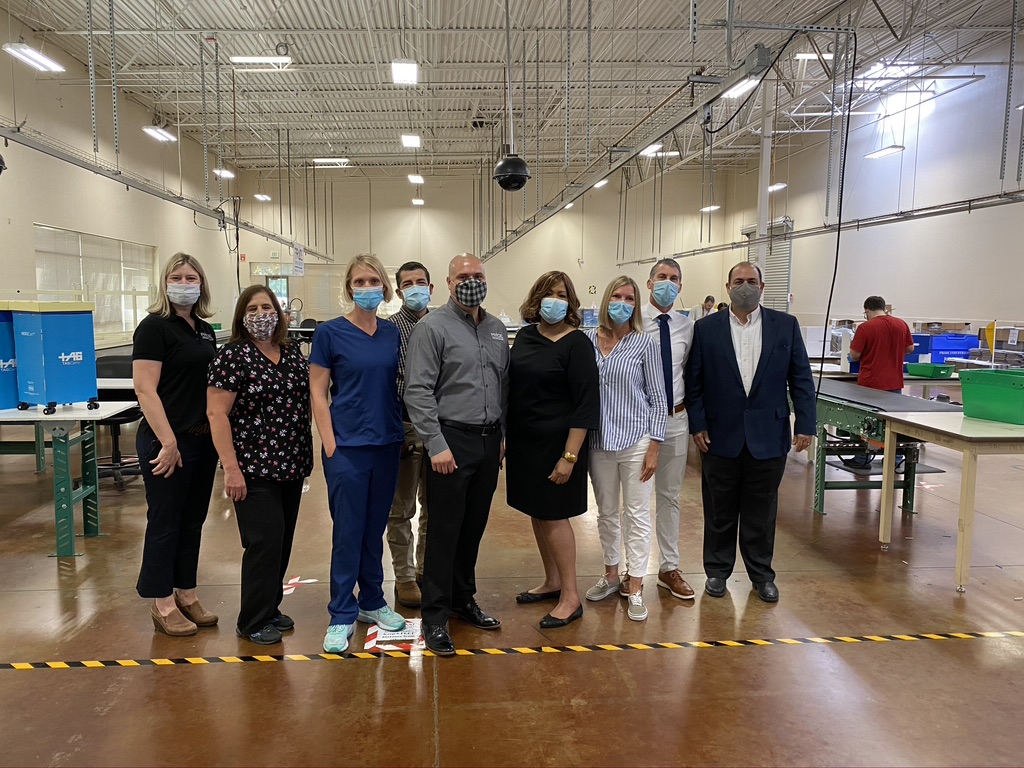
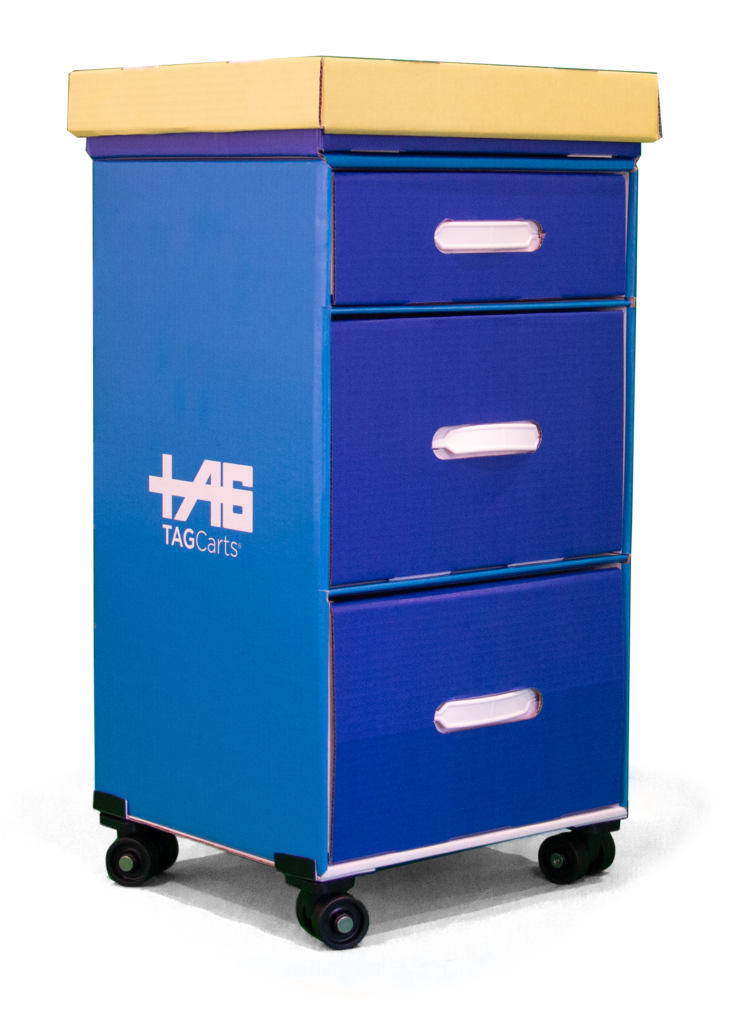
Thank you Gila River Healthcare for allowing TAGCarts to serve your HealthcareHEROES protecting the greater Gila River Indian Community. We are glad the PPE kitted and single patient-use HEROCarts will aid in your fight of COVID-19 and beyond. Additionally we’d like to thank the State of Arizona Department of Health Services, Dircks Moving & Logistics, PRIDE Industries, and Pinal County Public Health for teaming up to get the front-line nurse Heroes at Hau’paul Red Tail Hawk Health Center the HEROCarts they need. Christopher Lomahquahu of the Gila River Indian News reports here, see the link below: http://www.gricnews.org/index.php/grin-articles/2020-articles/september-4-2020-articles/grhc-receives-donation-of-recyclable-bedside-carts-to-assist-patients
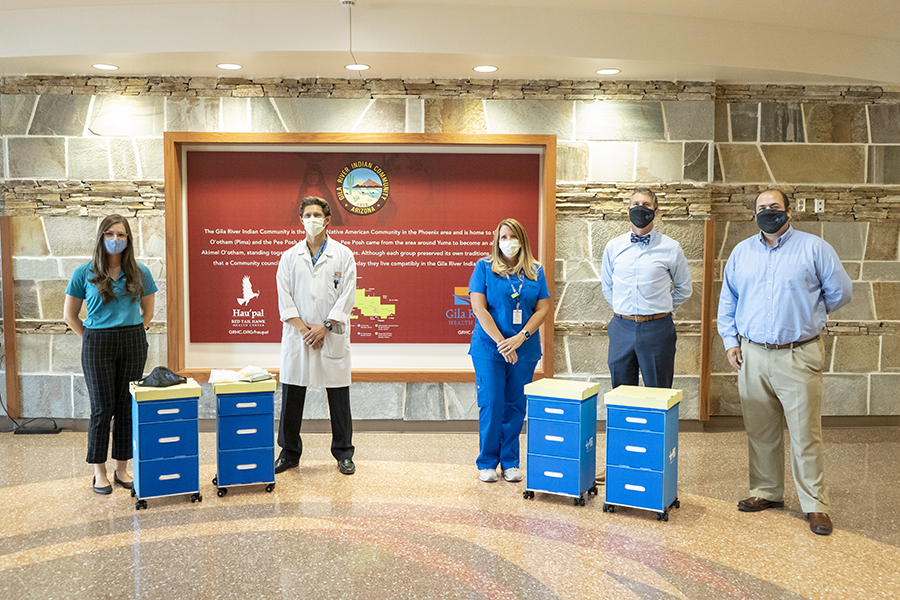
Clients & Featured Media:

